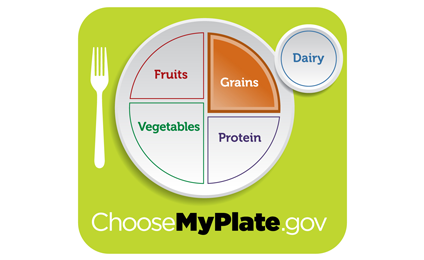Carbohydrates
Contrary to popular belief, carbohydrates are very healthy and necessary for performing everyday functions. When this vital nutrient is consumed, it breaks down into glucose. Glucose is the preferred source of energy for the body and the only source of energy for the brain. When extra glucose is consumed, it is stored in muscles and the liver for later use—such as for regular organ function, a walk up stairs, a marathon run, or any and all activities in between.
Low-carbohydrate diets, in their many versions, have been popular topics for years among those looking to lose weight. The truth is that carbohydrates do not cause weight gain, but some types of carbohydrates—simple carbohydrates—may interfere with weight loss and/or promote weight gain.
Simple carbohydrates are those that break down quickly in the body. These are essentially sugars—both natural and added sugars, in foods like fruits, dairy foods, sweets, and sugar-sweetened beverages (including fruit juice). Essentially, these types of carbohydrates are quickly absorbed into the blood stream, causing blood glucose levels to spike—and then later fall. This rise and fall causes the ‘sugar high’ you feel when consuming a piece of cake, a can of soda, or even your lunchtime sandwich. It is often followed by the ‘crash’ felt about an hour later, when you likely feel tired and sluggish. This rollercoaster of blood sugar levels can be dangerous for those with diabetes but can also negatively impact energy levels and hunger cues of others without the disease.
As the much preferred alternative to simple carbohydrates, complex carbohydrates provide fiber, vitamins, minerals, and phytochemicals—and leave you feeling satisfied and energized. Complex carbohydrates take longer to digest than simple carbohydrates, turning the rollercoaster of blood glucose levels into more of a gentle wave. Starch and fiber are the two types of complex carbohydrates. Starch comes in the form of grains, breads, cereals, and starchy vegetables, like potatoes and corn*. Fiber is found in fruits, vegetables, legumes (i.e., beans, peas and lentils) and whole grains—including the every-popular popcorn! It is important to remember that refined grains, such as white breads, pasta, and rice, have little-to-no fiber. As we learned last time, fiber keeps you feeling full; this is because fiber slows digestion even more than starch alone. For instance, whole wheat bread will take longer to digest than white bread because it has more fiber—even though both are sources of starch.
Fiber
To dig even deeper, fiber can be classified as either dietary or functional fiber. Dietary fiber is the form of fiber found in plants, such as fruits, vegetables, and whole grains. Functional fiber is fiber that can be artificially made and added to products, such as snack bars, crackers, yogurts, and some over-the-counter supplements. As with all nutrients, food is the preferred source over supplements and additives. Thus, dietary fiber should be focused on when working to meet daily fiber needs. Dietary fiber can also be further classified into two types: soluble and insoluble fiber. Soluble fiber is found in foods like oats, barley, apples, and citrus fruits. It forms a gel-like substance when digested and binds and eliminates cholesterol, helping to lower blood cholesterol levels. Insoluble fiber is found in whole wheat products, nuts, beans, and many fruits and vegetables (particularly in their skins). It does not break down when digested but instead provides bulk to stools, helping to promote bowel regularity. All packaged food products are required to list total fiber on their nutrition facts labels, while some food products may even distinguish the amount of fiber coming from soluble and insoluble fiber. Look for high fiber foods (5 grams/serving) and good sources of fiber (2.5-4.9 grams/serving) to make sure you’re on your way to meeting your daily fiber needs. The Institute of Medicine recommends including the following amount of fiber daily:
- Males 19-50 years: 38 g/day
- Males 50-70 years: 30 g/day
- Females 19-50 years: 25 g/day
- Females 50-70 years: 21 g/day
Take Home Message
Putting all of this information together, the main message is that each of us needs carbohydrates as part of a healthy, balanced diet. The Institute of Medicine recommends 45-65% of an adult’s calorie intake come from carbohydrates. Rather than choosing a low-carbohydrate diet, focus instead on a complex carbohydrate-rich diet. Nutrient-dense and fiber-rich carbohydrates, like those from whole grains, fruits, vegetables, legumes, and low-fat and fat-free dairy products, are the better choices to meet recommended carbohydrate needs. The occasional simple carbohydrate is OK—but enjoy in moderation to avoid low energy levels and keep the focus on nutritious—and yummy—complex carbs!

